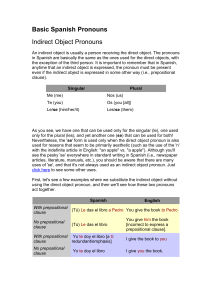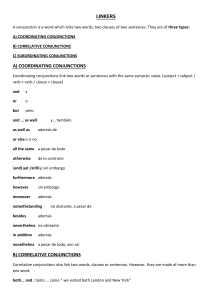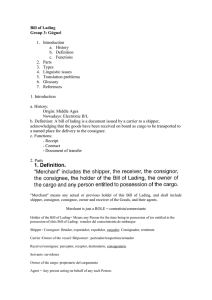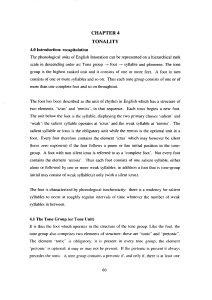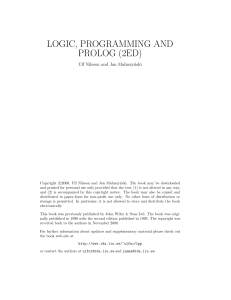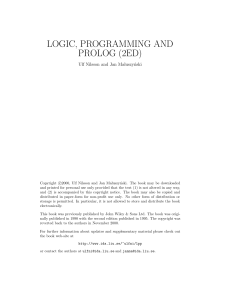Indirect Object Pronouns An indirect object is usually a person
Anuncio
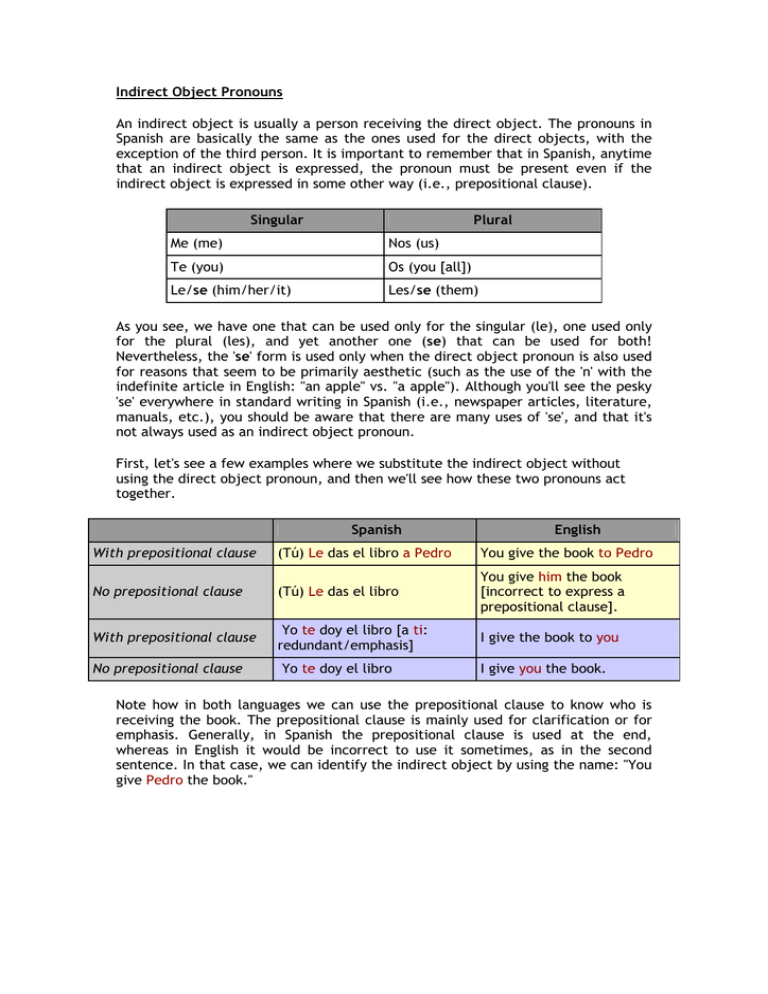
Indirect Object Pronouns An indirect object is usually a person receiving the direct object. The pronouns in Spanish are basically the same as the ones used for the direct objects, with the exception of the third person. It is important to remember that in Spanish, anytime that an indirect object is expressed, the pronoun must be present even if the indirect object is expressed in some other way (i.e., prepositional clause). Singular Plural Me (me) Nos (us) Te (you) Os (you [all]) Le/se (him/her/it) Les/se (them) As you see, we have one that can be used only for the singular (le), one used only for the plural (les), and yet another one (se) that can be used for both! Nevertheless, the 'se' form is used only when the direct object pronoun is also used for reasons that seem to be primarily aesthetic (such as the use of the 'n' with the indefinite article in English: "an apple" vs. "a apple"). Although you'll see the pesky 'se' everywhere in standard writing in Spanish (i.e., newspaper articles, literature, manuals, etc.), you should be aware that there are many uses of 'se', and that it's not always used as an indirect object pronoun. First, let's see a few examples where we substitute the indirect object without using the direct object pronoun, and then we'll see how these two pronouns act together. Spanish English With prepositional clause (Tú) Le das el libro a Pedro You give the book to Pedro No prepositional clause (Tú) Le das el libro You give him the book [incorrect to express a prepositional clause]. With prepositional clause Yo te doy el libro [a ti: redundant/emphasis] I give the book to you No prepositional clause Yo te doy el libro I give you the book. Note how in both languages we can use the prepositional clause to know who is receiving the book. The prepositional clause is mainly used for clarification or for emphasis. Generally, in Spanish the prepositional clause is used at the end, whereas in English it would be incorrect to use it sometimes, as in the second sentence. In that case, we can identify the indirect object by using the name: "You give Pedro the book." EJERCICIOS A Julita y su esposo están en un restaurante comiendo. Llene los espacios con las formas apropiadas de los objetos indirectos. Mesero: ¿Qué puedo servir_____, señorita? Julita: _____ puede traer una pizza a mi esposo y a mí. Manolo: Julita, también debes pedir_____ al mesero más café para nosotros. Julita: Sí, por favor señor, traiga______ café. Mesero: Enseguida, señorita. También, ______ recomiendo a Uds. la sopa de mariscos. ¡Está exquisita! Julita: Muy bien, por favor sirve_____ a mí la sopa pero mi esposo prefiere que Ud. ____ traiga la sopa de cebolla. Mesero: Muy bien. ______ sugiero a Uds. una torta de chocolate para el postre. Manolo: ¡Perfecto! Por favor, traiga______ la torta. B Llene los espacios con la forma correcta del objeto indirecto. Carmen: Oye, Lola, estoy arruinada. ¿________ prestas un poco de dinero? Lola: Sí, ______ doy a ti lo que tengo… no voy a tener dinero para el autobús. Carmen: ¡Venga, Lola! Tú no vas en autobús. Miguel siempre _______ lleva a Ana y a ti en coche a casa. Lola: Bueno, sí. Pero Ana y Miguel rompieron y ahora él no ______ lleva a nosotras a casa. Carmen: Tengo una idea. Voy a decir_____ a mi hermano que ______ regale su coche a mí. ¡Entonces ______ puedo llevar a casa! C Elija el PRONOMBRE DEL OBJETO INDIRECTO adecuado en cada caso. 1. Cada día la profesora ________ pregunta a mí si tengo problemas con la gramática. 2. Juana _________escribe cartas a su novio cada semana. 3. El padre _________ lee un cuento a la niña antes de dormir. 4. Cuando usted regresa a casa muy tarde, ¿________ hacen a usted muchas preguntas sus padres? 5. Papá Noel _________trae regalos a los niños. 6. Mi madre _________ habla a mí cada noche por teléfono. 7. Los nietos _________ contestan a la abuela en voz alta porque es sorda. 8. El profesor ________ explica bien la gramática a ti. 9. El entrenador siempre ________ explica a nosotros las reglas del partido. 10. El mesero ________ pregunta a ustedes en el restaurante qué quieren comer. 11. El jefe ________ pregunta a ellas cuándo salen de vacaciones 12. ¿Tus padres _________ leen a ti el periódico? 13. La madre _________ dice a Jorge que hace mucho frío. 14. Sus padres_________ dicen a ustedes que no tienen que manejar muy deprisa. 15. La madre de Carlos siempre _________ pregunta a nosotros si queremos comer algo.
